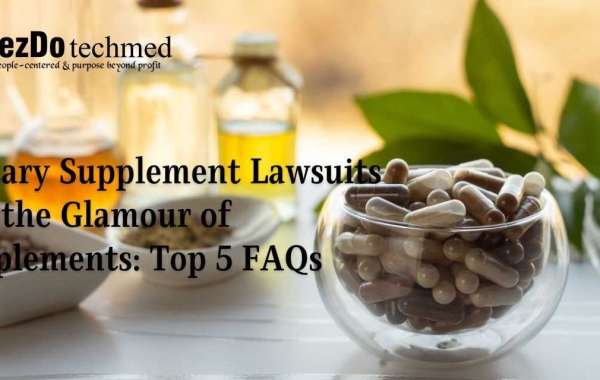https://www.lezdotechmed.com/blog/product-liability/dietary-supplement-lawsuits/
Dietary supplement products and dietary supplement lawsuits are subject to FDA restrictions. Compared to "normal" food and medication goods, dietary supplements are subject to various FDA restrictions.
It is against the law for manufacturers of dietary supplements and their distributors to promote tainted or falsely labelled goods.
Supplements are seen by the FDA as food, not medicine. This means that even while the FDA is responsible for recalling any items that are dangerous after they are put up for sale, the agency is not responsible for inspecting them before they are put on the market.
The FDA is not allowed to approve dietary supplements for efficacy and safety prior to their commercialization under the DSHEA. Many times, companies don't even need to notify the FDA before putting dietary supplements on the market.
Before choosing whether to purchase or utilise a supplement, the FDA urges people to do their homework and speak with their doctor, pharmacist, or other healthcare expert. This is as a result of the potential health hazards connected to supplement use.
Before selling a dietary supplement containing that ingredient, the manufacturers of the supplement must provide information for the FDA to evaluate the substance's safety (but not its efficacy).
After a dietary supplement enters the market, the FDA has the legal right to take action against any adulterated or incorrectly labelled products. The agency investigates NDI notifications and other regulatory submissions for dietary supplements in order to find anomalies. It also monitors the market, inspects dietary supplements and dietary ingredients that are offered for import, and performs inspections.
Compared to 45 in 2020 and 65 in 2019, the number of dietary supplement lawsuits recorded in 2021 was lower. According to the data, over 70% of the cases filed in 2021 involved claims of deceptive labelling.
The state with the most product liability class action lawsuit filings was California (12), then New York (6). Under California's Unfair Competition Law, consumers may file a lawsuit for any regulatory violation even if the Act does not specifically mention consumer enforcement.
The New York State Attorney General's office issued cease-and-desist letters directing GNC, Target, Walgreens, and Wal-Mart to discontinue selling certain nutritional and herbal supplements. Gingko, ginseng, and echinacea were among the products mentioned for false labelling and dishonest marketing.
foodandsupplementclassactionsuits
foodanddietarysupplementclassactions













